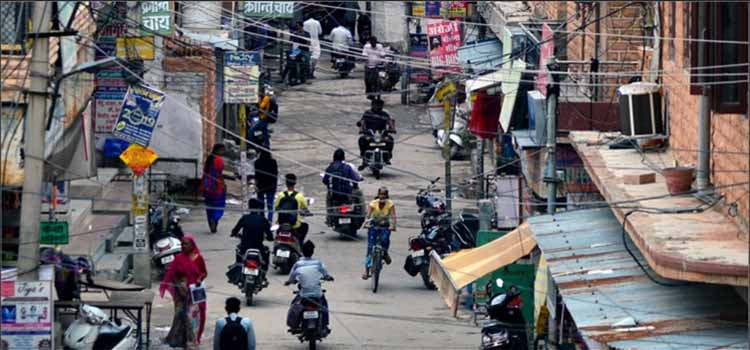Need of driving license for disputes arising in road
Posted On : March 21, 2022

Table of Contents
History of Motor Vehicle Laws in India
The Government of India has always played a vital role in maintaining the road safety. From awaking people through different schemes and messages like “Safe drive, save life” to enforcing stricter rules for motorists occasionally, in order to make driving a safe and stressless experience for all. The Motor Insurance has also been made a compulsion for all vehicle owners only to protect them from any mishaps under the Motor Vehicles Act of 1988 and huge fines for overhasty drivers under the Motor Vehicle Amendment Act 2019. There were many legislations that have been passed over the years in order to better road safety. The Indian Motor Vehicles Act of 1914 was the very first act under the central legislation that was passed under British India including eighteen sections. It enabled the local governments to regulate enforcements and to ensure the registration and licensing of vehicles and motorists to maintain road safety. The Act was later modified in some princely states in 1920 and 1924 and adhered to until the Motor Vehicles Act in 1988.
The Motor Vehicles Act of 1988 came into force on 1st July 1989 which almost regulates all aspects of road transport vehicles. It made licensing of the motorists and registration of the vehicle’s mandatory. It also introduced the system of Learner’s license for all the drivers whoever is willing to obtain a license and using the “L” board along with a compulsory assistance from an instructor while driving in public place. The Act also introduced rules and regulations for permit control, traffic regulation, motor insurances, and invoked penalties. The Act provided that any person under the age of 18 is not allowed to drive a vehicle in a public place and a learner’s license or driving license should be issued only if such person meets the eligibility requirement. The Act also lifted the limitations on third-party motor insurance and a cap for third-party liabilities up to Rs. 10 lakhs for death and Rs. 5 lakhs for serious injuries were invoked.
The Motor Vehicles (Amendment) Act of 2019, was implemented from 1st September, 2019 to enforce more stricter traffic rules in the country. The most valuable provisions that were included under the Act invoked compensation up to two lakhs for road accident victims and lumpsum fine for willful offenders. It also reestablished recall of vehicles for all vehicles which may be an unreasonable safety risk to other motorists, the driver, and the environment. The Central government also created the National Road Safety Board as an advisory board on all aspects of road safety and traffic management through this amendment.
Necessity of a Driving License for any Dispute Arising on Road
Section 4 of the Motor Vehicles Act, 1988 provides that any person below the age of eighteen years old is not allowed to drive a motor vehicle in the public places and also it provides that no learner’s license or driving license should be issued to such person. According to the section 3 of the Motor Vehicles Act, 1988 no person is allowed to drive any motor vehicle on the road if they are not holding a valid license that authorizes him to drive such vehicle and also any owner or person in charge of a vehicle is prohibited to give authority to use their vehicle to any person who is not holding any valid driving license and is not meeting the eligibility criteria as per section 3 and 4 of the Motor Vehicles Act, 1988. But if any person violates these laws will be held liable to pay fine or imprisoned or may be offered with both. Thus, according to the provisions of the Motor Vehicles Act, 1988 it is mandatory to hold a valid driving license to use one’s own vehicle in public places.
Contact Motor accidents lawyers in your nearby location.
In the case of New India Assurance Co. Ltd. Vs. Suresh Chandra Agarwal1 the respondent’s driving license had expired on the day of the accident which he renewed in some later date. So, it was held by the honorable Supreme Court of India that the insurance company will not be liable to pay the claim made by the respondent as during the time of the accident he was not holding any valid license but still he drove the car. In the case of Ashok Gangadhar Maratha vs. Oriental Insurance Co. Ltd.2 the honorable Supreme Court of India allowed the costs to be paid by the insurance company and also decided that the appellant was holding a valid license to drive a light motor vehicle and is thus entitled to get compensation from the insurance company. It was held by the Supreme Court of India that “the vehicle in the present case weighed 5,920 kilograms and the driver had the driving license to drive a light motor vehicle. It is not that, therefore, the insurance policy covered a transport vehicle which meant a goods carriage. The whole case of the insurer has been built on a wrong premise. It is itself the case of the insurer that in the case of a light motor vehicle which is a non-transport vehicle, there was no statutory requirement to have specific authorization on the license of the driver under Form 6 under the Rules. It has, therefore, to be held that Jadhav was holding effective valid license on the date of accident to drive light motor vehicle bearing Registration No. KA-28-567. Accordingly, the appeal is allowed. Order of the National Consumer Disputes Redressal Commission is set aside and that of the State Consumer Disputes Redressal Commission restored though on different ground. Appellant would be entitled to costs.”
In the case of Mukund Dewangan vs. Oriental Ins. Co. Ltd3 it was held by the Supreme Court of India opined that if a person is holding an effective learner’s license, then they can also drive the vehicle when not used for the transport of goods at the time of the accident and that such a person satisfies the requirements of the limitations of Rule 3 of the Central Motor Vehicles Rules, 1989. It held that, “if a permanent license-holder having an effective/valid license to drive a tractor can drive even when the tractor is used for carrying goods. When the policy itself so permits, the High Court was wrong in coming to the conclusion that a person having a valid driving license to drive a tractor would become disqualified to drive the tractor if a trailer was attached to it.”
Thus, it can be concluded from the above article that a driving license plays a vital role in the public places. It can be termed as one the mot important documents that an owner of the vehicles needs to have if they are driving the permitted vehicle in the public places by an appropriate authority. Thus, having a valid license for any dispute arising on road is very necessary. If any person who is not having a valid license, but is driving a vehicle in the public place will be liable to pay fine and if such person tries to run away from the scene or tries to avoid the charges, then they can drag in charges of criminal offence against them as well.
1. CIVIL APPEAL NO. 44 OF 2003.
2. 1999, 6 SCC 620.
3. CIVIL APPEAL NO.5826 OF 2011.
References
1)The Motor vehicles (Amendment) Act, 2019
2) The Motor vehicles Act 1988




















